Editors
Interviews - Editors
-
“With This Film, It Came Full Circle”: Editor Ron Patane on The Pod Generation

In The Pod Generation, the third feature film from French-American director Sophie Barthes, the process of pregnancy and birth has been offloaded from human bodies, relegated to artificial pods that produce fetuses. New York-based couple Rachel and Alvy (Emilia Clarke and Chiwetel Ejiofor) are excited to learn that they’ve been selected to attend the ultra-exclusive Womb Center, where these quasi-artificial offspring are conceived. However, even within the confines of this futuristic world, technologies of convenience must be questioned and contended with. Editor Ron Patane discusses his initial excitement at the prospect of working on the film, aspects of The Pod […]
-
“We Hope That This Film and Its Female Narrative Will Echo the Voice of Iranian Women”: Editor Elika Rezaee on Shayda

Elika Rezaee understood that signing on to edit Shayda, the deeply personal narrative debut from writer-director Noora Niasari, would require the utmost sensitivity. The film mines from Niasari’s lived experiences, following the titular character as she and her daughter Mona temporarily move into an Australian women’s shelter after Shayda’s divorce from her abusive husband. When a court order deems that her ex is entitled to visitation rights with their daughter, Shayda becomes afraid that he will take Mona and return to their native Iran. Rezaee tells Filmmaker about her first reaction to Niasari’s script, her editing career origins and how she […]
-
“I Wanted To Make Sure the Film Felt Lived In”: Editor Ryan Kendrick on Sometimes I Think About Dying
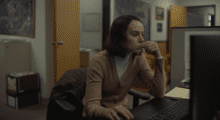
The depressing atmosphere of cubicle culture permeates Sometimes I Think About Dying, Rachel Lambert’s latest directorial effort. At least until a charming new hire begins to break down the defenses of Fran (Daisy Ridley), the film’s protagonist who, yes, often thinks about her own death to kill time. Editor Ryan Kendrick tells Filmmaker about his previous collaborations with Lambert, how his history as a documentary editor helped on this narrative project and how he broke into the business. See all responses to our annual Sundance editor interviews here. Filmmaker: How and why did you wind up being the editor of your […]
-
“A Foray Into the Heart of Different Family Dynamics”: Editor Anouk Deschênes on The Longest Goodbye
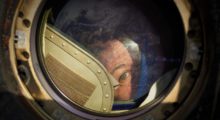
While the prospect of traveling on a years-long expedition to Mars might seem like an alien scenario to most, Ido Mizrahy’s documentary The Longest Goodbye argues that we may have more in common with deep space astronauts than we think. Especially in the wake of COVID, we all know the feeling of being indefinitely estranged from loved ones, with only the Internet to aid us in our human quest for connection. Filmmaker asked editor Anouk Deschênes to detail her process on this film, from signing onto the project to cutting the film’s most difficult scene. See all responses to our […]
-
“Emanuele Asked Me to ‘Undertake the Journey’ With Him”: Editor Clelio Benevento on L’Immensità
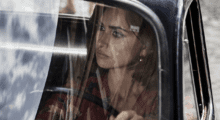
After premiering at the 2022 Venice Film Festival, Italian director Emanuele Crialese’s latest feature L’Immensità makes its way Sundance in the festival’s “Spotlight” section. Co-written by Crialese alongside Francesca Manieri and Vittorio Moroni, the film is a semi-autobiographical account of the director’s coming of age in Rome during the ’70s. Editor Clelio Benevento discusses how he came to work on the film, the differences between his and the director’s work styles and the gratitude he has for his film school professors. See all responses to our annual Sundance editor interviews here. Filmmaker: How and why did you wind up being the […]
-
Editor Walter Murch on the Golden Ratio, Recreating a ’70s-era Editing Room and The Conversation
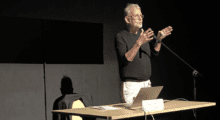
Watching a documentary on film history, editor Walter Murch was struck by how different cinematographers tended to frame faces in close-ups similarly. “I noticed something peculiar,” he said. “No matter what the film was, the eyes of performers in close-up seemed to float along the same line from shot to shot.” Murch tested his theory by tying a string of knitting yarn across his television screen. Dividing measurements from above and below the line gave him 1.618, a number that represents phi, or the golden ratio. Further measurements of faces in close-ups—from the upper frame edges to hairlines, from chins […]
-
“Significant Portions of the Movie Were Literally Just Lit by the Television”: Kyle Edward Ball on Skinamarink
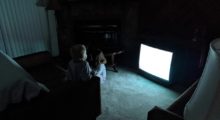
The primordial fear of being watched, stalked and caught by an unknown entity lurking in the dark is the basis of Skinamarink, the microbudget feature debut from writer-director-editor Kyle Edward Ball. The incredibly loose narrative follows young siblings Kevin (Lucas Paul) and Kaylee (Dali Rose Tetreault) as they patter around their family’s strikingly ordinary middle-class house in the dead of night circa 1995. Their parents are nowhere to be found, all of the doors have mysteriously vanished and the lights eventually stop working. While this phenomena is enough to chill any child, their well-being is most threatened by a supernatural […]
-
“Being an Outsider to Palm Springs Was an Asset”: Sara Newens, Mina T. Son and Courtney Parker on Racist Trees
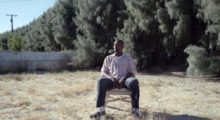
Sara Newens and Mina T. Son’s provocatively titled Racist Trees begins as an innocent investigation into the root (no pun intended) of a half-century dispute over a line of 60-foot tamarisks separating a historically Black section of Palm Springs from its historically white (and now overwhelmingly gay cisgender male) neighbors on the other side of a city-owned golf course. The film morphs into something much more shocking than merely another example of systemic inequality and the longstanding “polite” racism of white liberals who prefer gaslighting to admissions of culpability. Indeed, in the slyest and boldest of moves, the white and […]
-
Kept in Sync: Paul Rogers on Editing Everything Everywhere All At Once
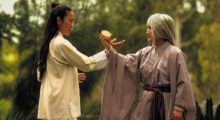
Everything Everywhere All At Once editor Paul Rogers first met co-directors Daniel Kwan and Daniel Scheinert, or the Daniels, at OMG CAMERAS EVERYWHERE, a free filmmaking summer camp pairing kids with established filmmakers to shoot videos for musicians like Daft Punk, Diplo and Benny Blanco. When I called Rogers via Zoom to interview him, Scheinert sat beside him with a guitar and occasionally chimed in: “The first thing we worked on together was a silly music video with kids—no rules, directions or studio notes. We just had to make something that would make the kids excited about what they did […]
-
“Every Change I Make is Then Turned into a Budget and an Invoice”: Editor Mike Sale on Black Adam
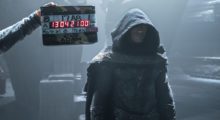
Your first feature film credit is a memorable experience for anyone who grew up loving movies, but for editor Mike Sale, ACE, that inaugural gig was particularly indelible. Sale made his cinematic debut on the infamous trading card-to-movie adaptation of The Garbage Pail Kids. “It was like a film school—the Garbage Pail Kids film school,” laughed Sale. “It was a fascinating learning experience and I had a lot to learn back then. Just seeing that kind of movie come together was incredible for a young person who had never made a movie before.” Sale graduated from Garbage Pail Kids film […]
